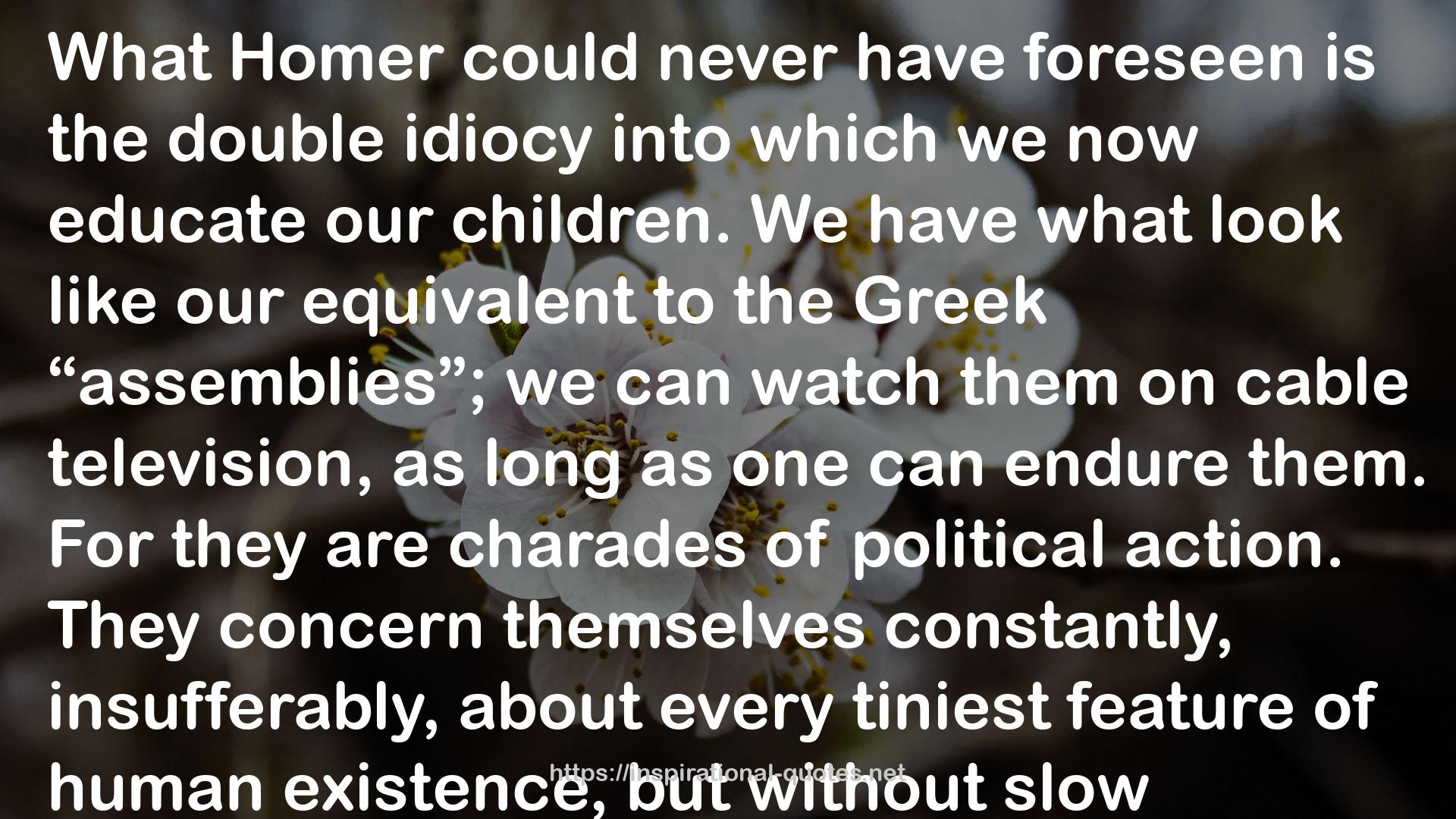" What Homer could never have foreseen is the double idiocy into which we now educate our children. We have what look like our equivalent to the Greek “assemblies”; we can watch them on cable television, as long as one can endure them. For they are charades of political action. They concern themselves constantly, insufferably, about every tiniest feature of human existence, but without slow deliberation, without balance, without any commitment to the difficult virtues. We do not have men locked in intellectual battle with other men, worthy opponents both, as Thomas Paine battled with John Dickinson, or Daniel Webster with Robert Hayne. We have men strutting and mugging for women nagging and bickering. We have the sputters of what used to be language, “tweets,” expressions of something less than opinion. It is the urge to join—something, anything—while remaining aloof from the people who live next door, whose names we do not know. Aristotle once wrote that youths should not study politics, because they had not the wealth of human experience to allow for it; all would become for them abstract and theoretical, like mathematics, which the philosopher said was more suitable for them. He concluded that men should begin to study politics at around the age of forty. Whether that wisdom would help us now, I don’t know. "
― Anthony Esolen , Life Under Compulsion: Ten Ways to Destroy the Humanity of Your Child
